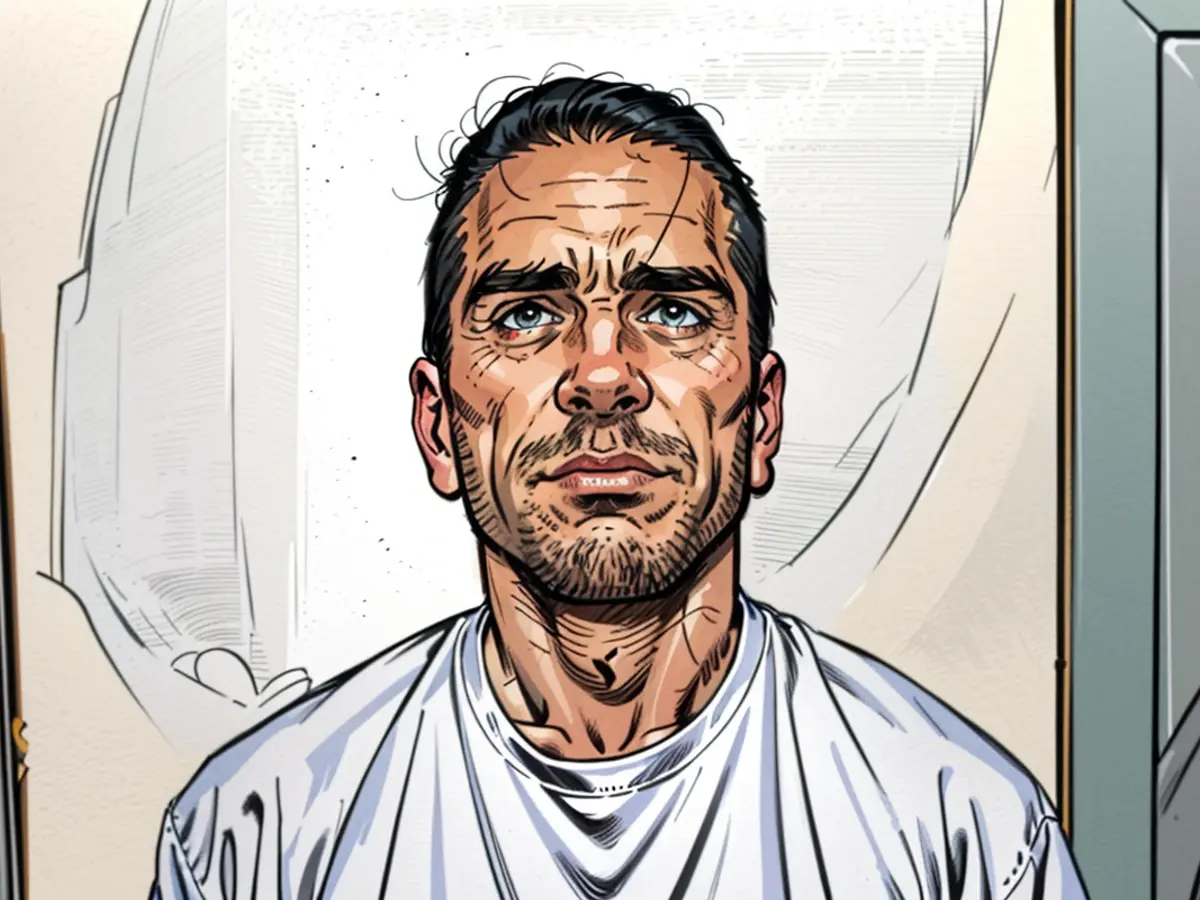The Conservative Justices at the Supreme Court grapple with the dilemma surrounding death row inmate Richard Glossip, who the prosecution wishes to spare.
Following approximately two hours of debate, it was apparent that the liberal trio of judges within the court would align with Richard Glossip, a 61-year-old man, who was sentenced for orchestrating the murder of Barry Van Treese in 1997. At least two conservative justices, such as Clarence Thomas and Samuel Alito, revealed significant reservations regarding Glossip's appeal and demonstrated their opposition to him.
Although Justice Brett Kavanaugh was the most sympathetic among the conservatives, Glossip has encountered numerous execution dates and last meals, only to have them postponed multiple times.
The majority decision of the court is expected to hinge on the perspectives of Chief Justice John Roberts and Justice Amy Coney Barrett.
Glossip's conviction primarily relies on the testimony of Justin Sneed, the individual who had fatally beaten Van Treese with a baseball bat in a lodging facility. In exchange for escaping the death penalty, Sneed incriminated Glossip as the primary culprit behind the crime.
However, a considerable amount of time later, the state revealed that Sneed had been diagnosed and treated for a severe psychiatric issue – information that Glossip's legal team asserts was withheld from the jury.
“He lied on the stand,” pointed out liberal Justice Elena Kagan, addressing Sneed's false assertion that he had never consulted a psychiatrist, when, in reality, it was a prison psychiatrist who had administered lithium to assist with his bipolar disorder treatment.
Thomas, who had led the opposition against Glossip, along with Alito, repeatedly posed queries concerning the investigation of the case years later, which hadn't thoroughly questioned the prosecutors involved about their notes, indicating they were aware of Sneed's diagnosis and treatment.
“They hold significant importance in this case,” Thomas said in regards to the prosecutors. “It would appear that an interview of these two prosecutors would play a crucial role.”
The potential resolution for the court might revolve around sending the case back to the state court for reevaluating the meaning behind the notes the prosecutors generated at the time. Several members, including liberal Justice Ketanji Brown Jackson, discussed the possibility of renewing the trial for an evidentiary hearing.
“Why wouldn’t we send it back for an evidentiary hearing?” Jackson pondered. “I have been informed that there has never been a court decision regarding those facts.”
The intense scrutiny of the death penalty cases by SCOTUS
The case has made its presence known at SCOTUS during a period when the death penalty, alongside the court's approach to it, is subject to deep focus and scrutiny.
Last month's divisive verdict that allowed Missouri to execute Marcellus Williams, despite opposition from the prosecutors, generated backlash from groups opposing the death penalty.
An array of additional death penalty appeals remain pending on SCOTUS's docket. The Supreme Court approved an appeal from Ruben Gutierrez, a death row inmate in Texas, who had been denied an opportunity to pursue post-conviction DNA testing. This case is anticipated to be discussed in oral argument late in the year.
Justices will also deliberate whether to hear arguments in other death penalty cases during their meeting on Friday. These cases involve an Oklahoma woman who claims she was sexually shamed during her trial and an Alabama man who alleges he is intellectually disabled, making him ineligible for execution, based on Supreme Court precedent.
The Glossip case is considered to be one of the highest-profile instances to reach the court in years, drawing top-notch Supreme Court lawyers. Seth Waxman, a former solicitor general, represents Glossip, while the supportive Oklahoma Attorney General Gentner Drummond was represented by Paul Clement, another former solicitor general.
Even though Drummond called for a renewed trial, the Court of Criminal Appeals of Oklahoma upheld Glossip's sentence, stating that the evidence at issue wouldn't have altered the outcome of the trial and that Glossip's legal team was aware of Sneed's lithium consumption.
Kavanaugh, who could potentially be a decisive influence, raised concerns about this position. Kavanaugh expressed confusion with the concept that “it still wouldn’t have affected the jury's decision had they been aware of Sneed's bipolar condition and his lying on the stand.”
Justice Neil Gorsuch was recused, leaving only eight justices responsible for determining Glossip's fate.
Before the justices could even tackle the technicalities of Glossip's appeal, they needed to address a procedural issue: Whether the state court erred in dismissing Drummond's admission of error. The defense and sentencing were sustained by attorney Christopher Michel, who argued that the state court's decision minimized the Supreme Court's potential to support Glossip's appeal.
In 2015, the Supreme Court denied Glossip's challenge to a new lethal injection protocol adopted by the state.
Despite the intense scrutiny of death penalty cases by the Supreme Court, some justices have expressed reservations about reopening old cases. For instance, Justice Samuel Alito questioned the need to revisit Glossip's case, given the past rulings and the passage of time.
Politics often play a role in these high-profile death penalty cases. For example, liberal Justice Elena Kagan criticized how prosecutors handled evidence in Glossip's case, suggesting it may have influenced the jury's decision.








